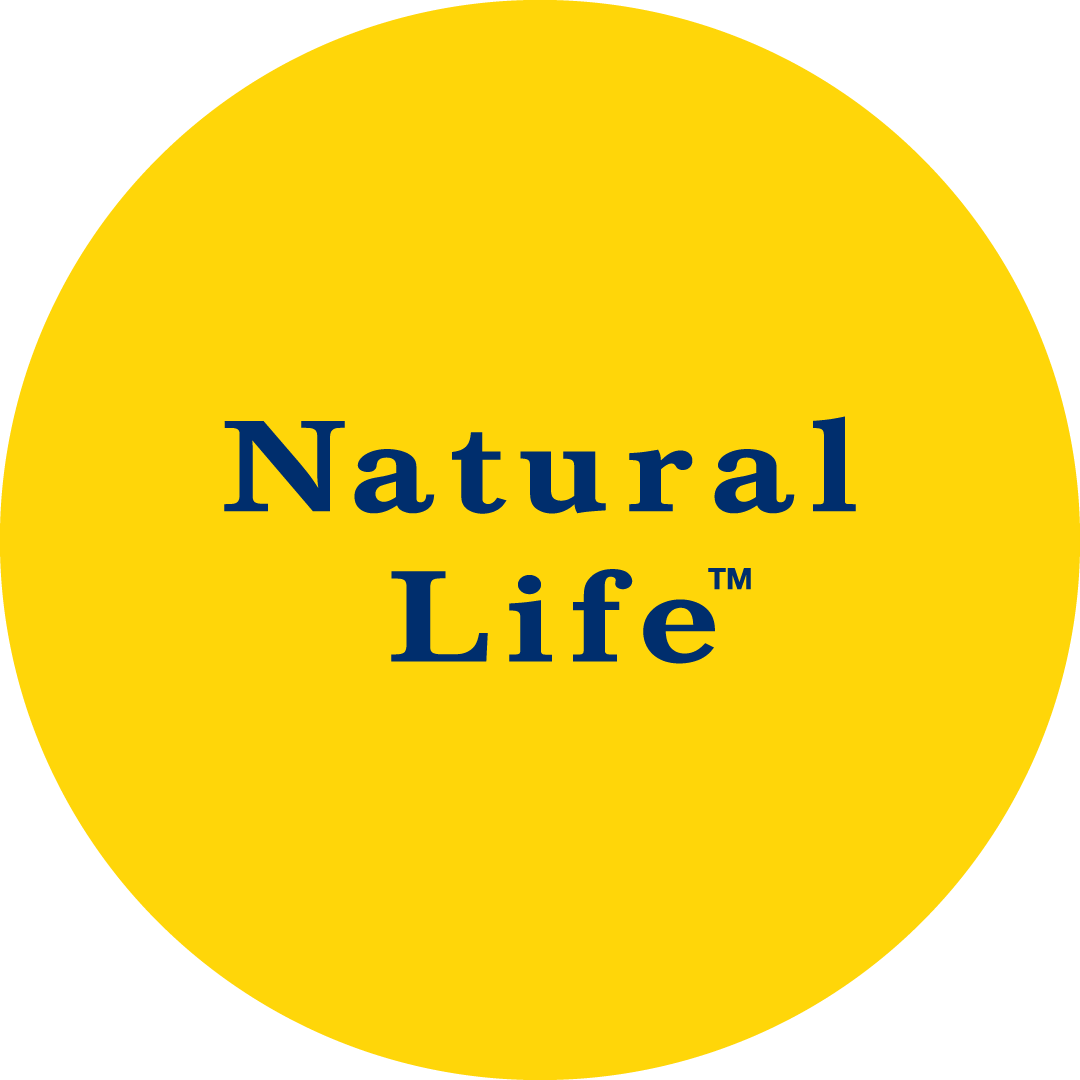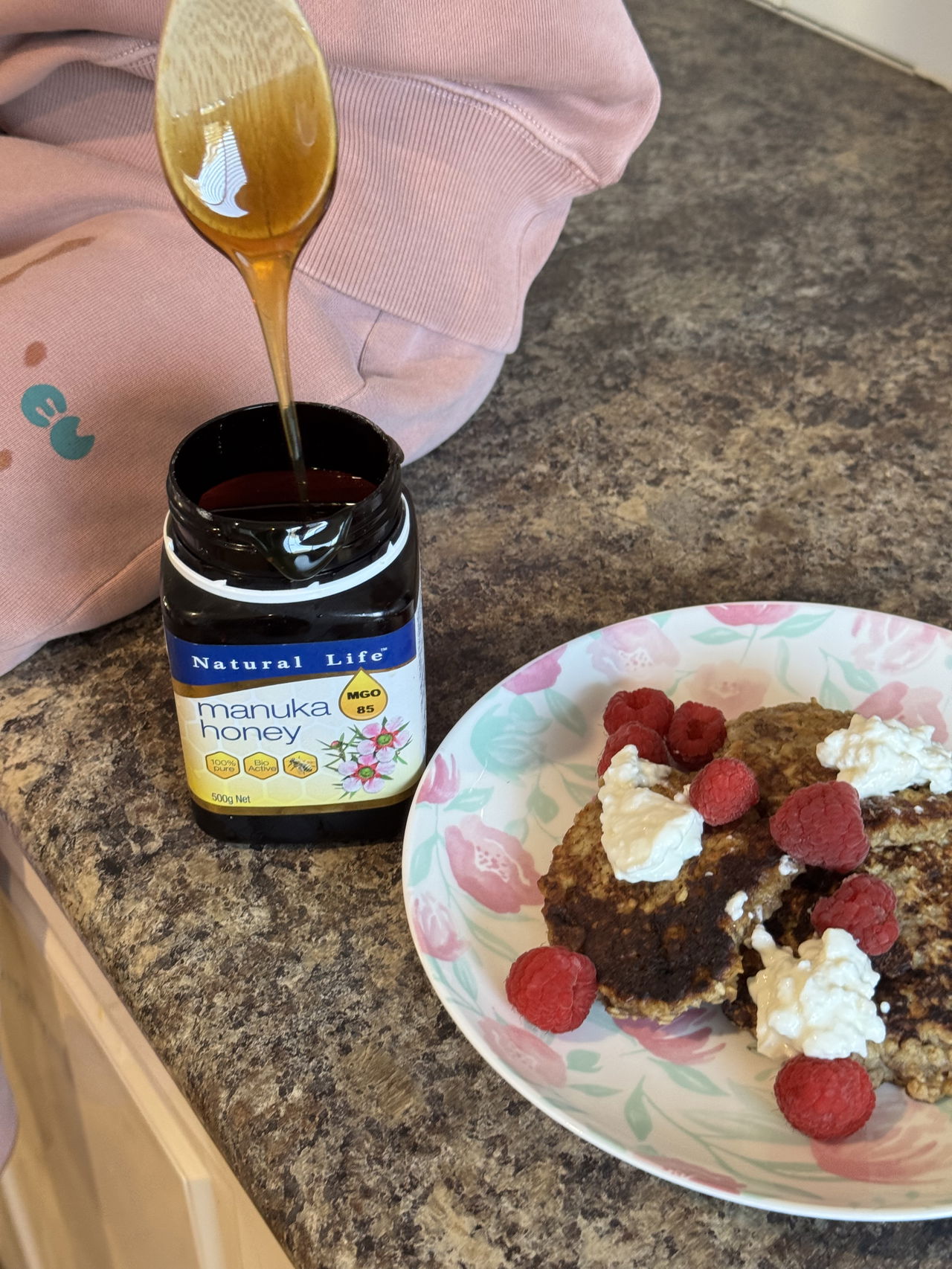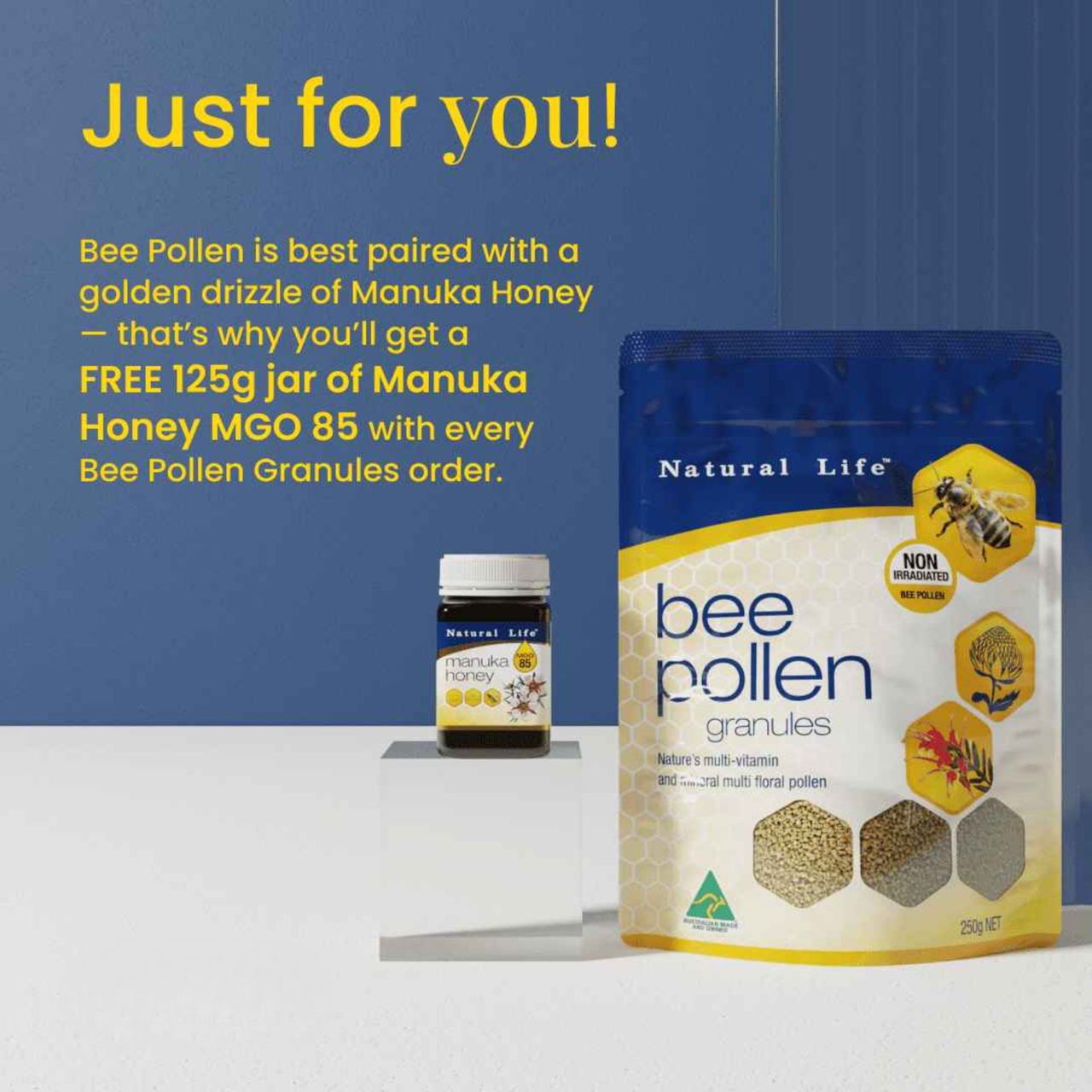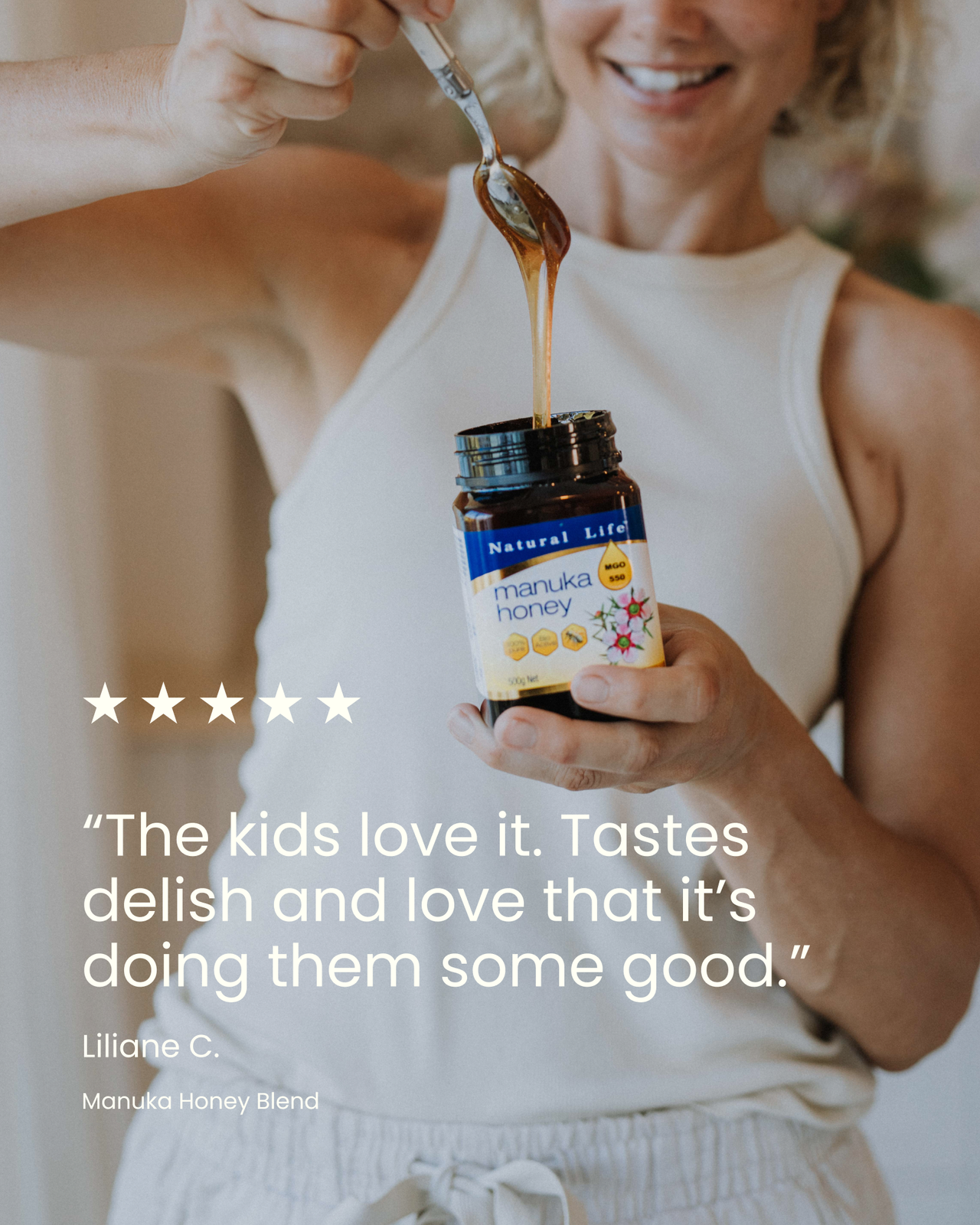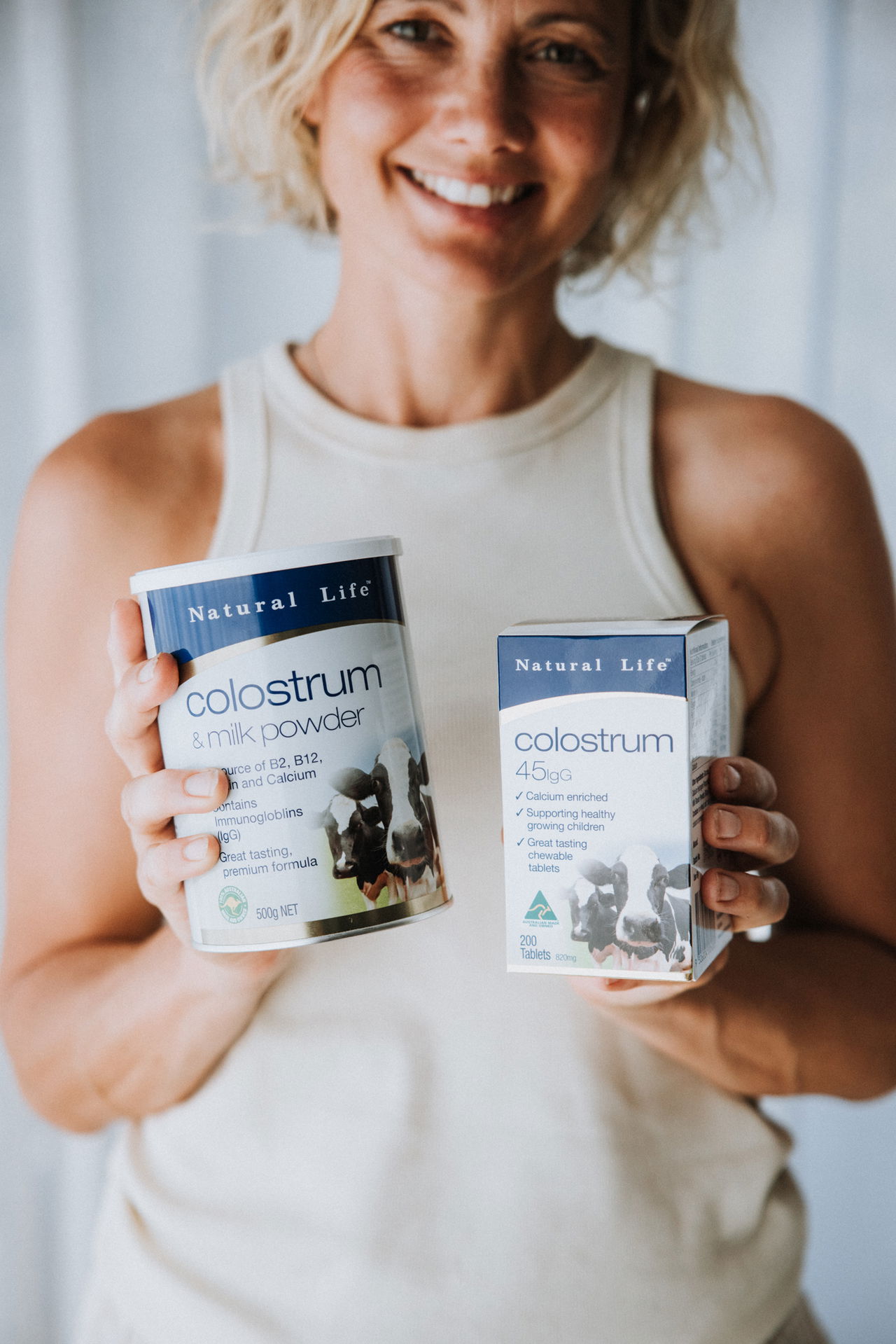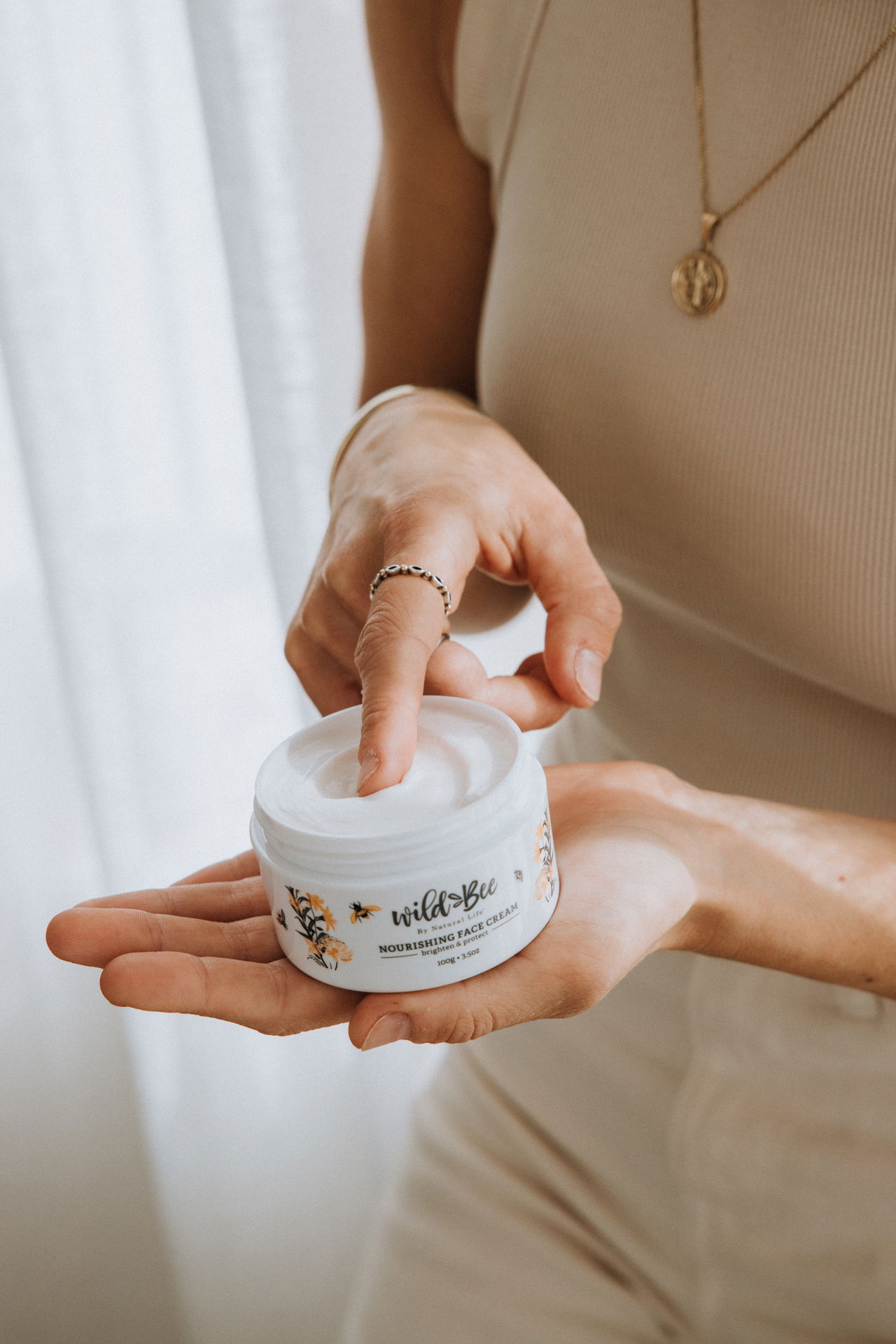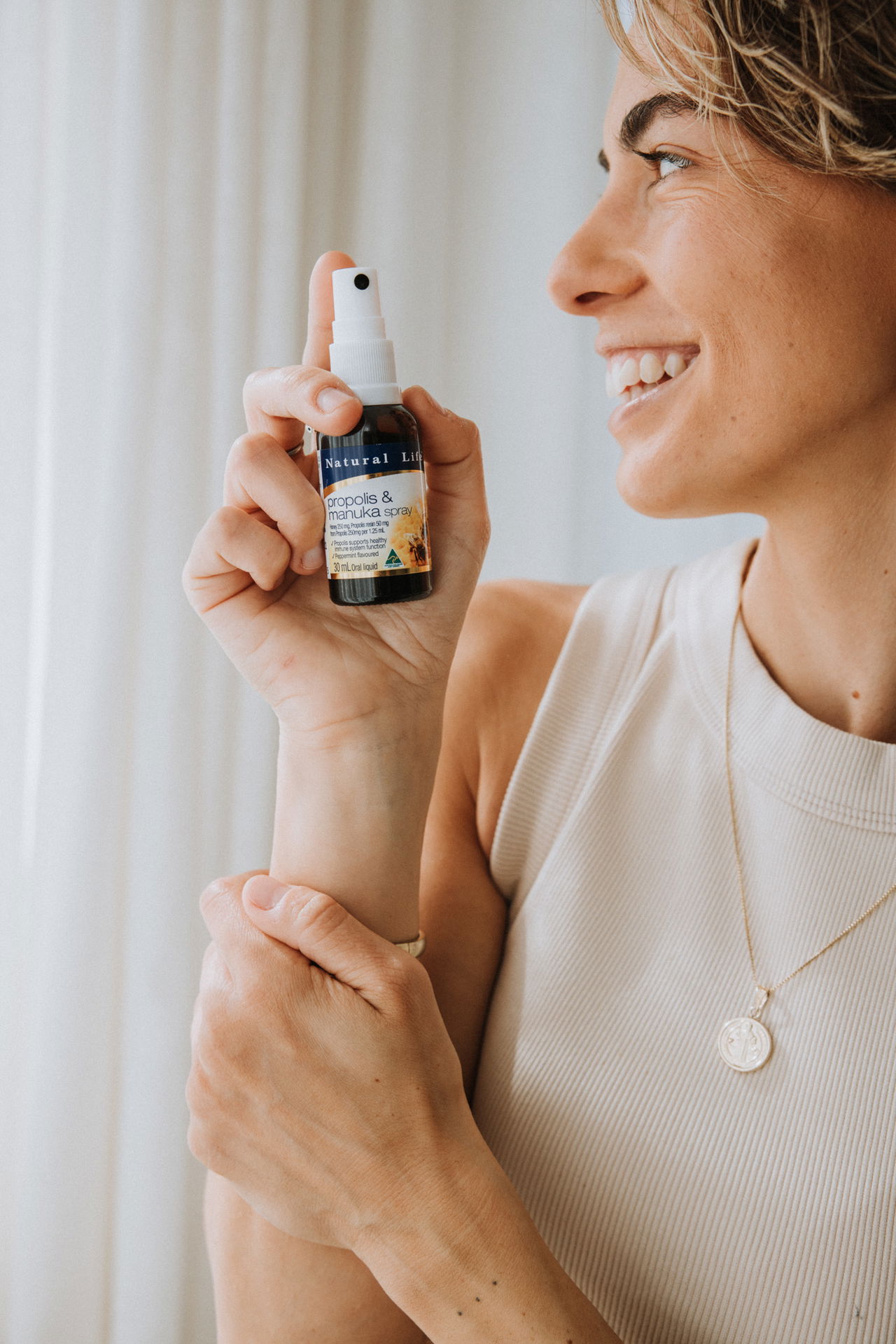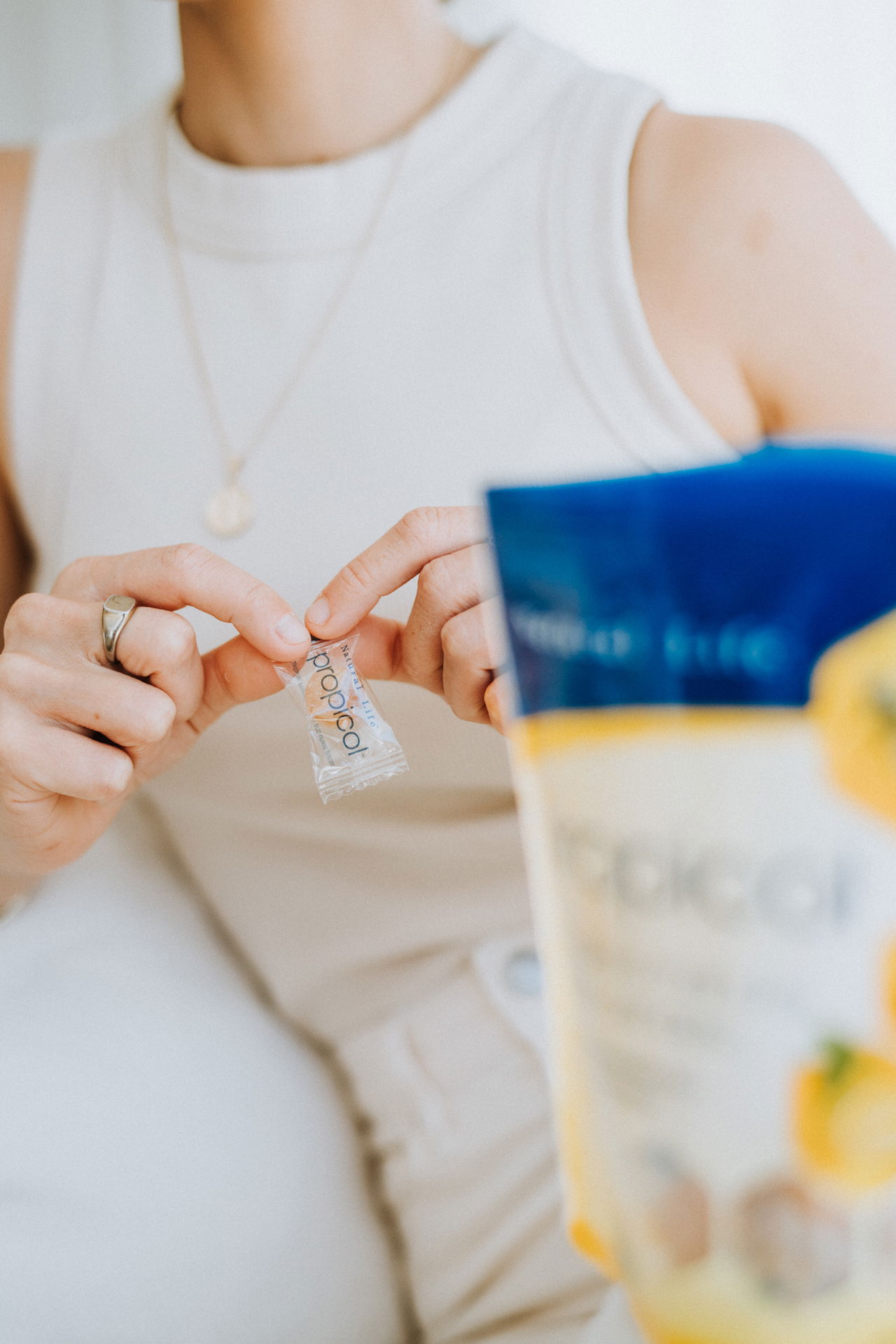
Reference Index
*Select clinical studies for some of your favourite ingredients.
Propolis Nutritional Breakdown
“Propolis has been documented to have more than 500 compounds, including flavonoids, phenolic compounds, polyphenols, terpenes, terpenoids, coumarins, steroids, amino acids, and aromatic acids. In addition, propolis is rich in phytochemicals, including essential oils, vitamins (A, B complexes, C, and E), and important minerals, such as aluminum, sodium, potassium, calcium, copper, magnesium, iron, and zinc which also play important roles in terms of biological activity ”
Title: Propolis: Its Role and Efficacy in Human Health and Diseases
Authors: Nadzirah Zullkiflee (Universiti Sains Malaysia), Hussein Taha (Al-Azhar University), and Anwar Usman (Universiti Sains Malaysia)
Source: https://www.ncbi.nlm.nih.gov/pmc/articles/PMC9504311/#:~:text=Propolis has been documented to,10%2C11%2C12]
Propolis Immune Boosting Properties
"Propolis can stimulate macrophages, enhance their microbicidal activity, and promote the production of cytokines such as TNF-α, IL-1β, and IL-6, which are essential in regulating immune responses."
Title: Effects of the Green Propolis on the Immune Response
Authors: Fischer G., Conceição F.R., Leite F.P.L., et al.
Source: https://link.springer.com/chapter/10.1007/978-3-030-83511-8_22
Propolis Wound Healing
“Propolis contains enormous active components that promote healing and is commonly used in folk medicine. The positive biological activity of propolis on tissue regeneration and wound repair results from its polyphenolic flavonoids’ anti-oxidative, anti-inflammatory, antimicrobial, and immunomodulatory properties.”
Title: Applications of propolis-based materials in wound healing
Authors: Mohamed El-Sakhawy,Ahmed Salama &Hebat-Allah S. Tohamy
Source: https://onlinelibrary.wiley.com/doi/10.1155/2022/5798941
Propolis Gum Protection
“Propolis has shown strong antimicrobial and anti-inflammatory properties, making it a good candidate for treatment and prevention of oral diseases.. In this context, a number of clinical trials have investigated the efficacy of propolis on plaque and gingivitis, and conflicting results were reported. While some studies found equal or even superior efficacy in favor of propolis”
Title: Efficacy of propolis-based mouthwashes on dental plaque and gingival inflammation: a systematic review
Authors: Esam Halboub,Sadeq A. Al-Maweri,Mohammed Al-Wesabi,Ahlam Al-Kamel,Anas Shamala,Amani Al-Sharani &Pradeep Koppolu
Source: https://bmcoralhealth.biomedcentral.com/articles/10.1186/s12903-020-01185-5
Propolis Bacteria Reduction
“A research by Koo et al. indicated high effectiveness of a propolis extract on reducing growth of bacteria that belong to red complex”
Title: Does Propolis Help to Maintain Oral Health?
Authors: Włodzimierz Więckiewicz,Marta Miernik,Mieszko Więckiewicz, andTadeusz Morawiec
Source: https://www.ncbi.nlm.nih.gov/pmc/articles/PMC3556426/
Propolis Dental Plaque
"The conducted studies showed that the use of toothpaste with propolis reduced dental plaque by 34.3% annually, whereas normal paste reduced the plaque by 31.9%. After two-year use of the paste with propolis a further reduction of plaque by 12.4% was observed, while normal paste managed to reduce it only by 5%.”
Title: Bee Products in Dermatology and Skin Care
Authors: Prof. Anna Kurek-Górecka
Source: https://www.ncbi.nlm.nih.gov/pmc/articles/PMC7036894/
Propolis For Acne
“There was a highly significant clinical efficacy of topical solution of ethanolic extract of propolis in the treatment of acne vulgaris. Topical propolis is a promising, effective, well-tolerated, safe, and alternative medication for acne vulgaris.”
Title: Significance of topical propolis in the treatment of facial acne vulgaris
Authors: Mohammad Ali, Basma; Ghoname, Naglaa F.b Hodeib, Abeer A. Elbadawy, Marwa
Source: https://journals.lww.com/ejdv/fulltext/2015/35010/significance_of_topical_
Propolis Skin Healing
"Propolis has been reported to stimulate the growth of skin tissue and regeneration as well as modulate collagen production... While direct antioxidant benefits have been discussed, the anti-inflammatory effects of propolis have also been shown to improve wound healing”
Title: Evidence on the Health Benefits of Supplemental Propolis
Authors: Andrea Braakhuis
Propolis Antioxidant Protection
“In the brain, oxidative stress results in acute and chronic injury and plays an important role in the pathogenesis of neuronal damage. Propolis and its derivatives appear to prevent oxidative stress in radiation-injured brain tissue by decreasing the formation of lipid peroxidation and increasing the antioxidant enzyme activities, and also by inhibiting free radical generation”
Title: Evidence on the Health Benefits of Supplemental Propolis
Authors: Andrea Braakhuis
Propolis Cellular Protection
“Propolis, through its bioactive compounds such as kaempferide and
kaempferol, was demonstrated to protect N2a cells against mutant copper-zinc superoxide dismutase-mediated toxicity through several mechanisms of action such as suppression of apoptosis, reduction of intracellular mutant aggregates, andantioxidant activityvia superoxide inhibition.”
Title: R. Lesmana, S. Tandean, A. Christoper, A.A. Suwantika, N. Wathoni, R. Abdulah, J. Fearnley, V. Bankova, F. Zulhendri
Authors: Fischer G., Conceição F.R., Leite F.P.L., et al.
Source: https://www.sciencedirect.com/science/article/pii/S0753332224006292#:~:text=Propolis%2C through its bioactive compounds,intracellular mutant aggregates%2C and antioxidant
Bee Pollen Nutritional Composition
“Furthermore, bee pollen is known as “the perfectly complete food” due to its strong antioxidant potential and the presence of antioxidant compounds such as polyphenols, flavonoids, carotenoids, and vitamins (A, C, and E) giving this product a high antioxidant potential and making it the latest trend in dietary supplements.”
Title: Bee Pollen as Functional Food: Insights into Its Composition and Therapeutic Properties
Authors: Asmae El Ghouizi,1Meryem Bakour, Hassan Laaroussi, Driss Ousaaid, Naoual El Menyiy, Christophe Hano, 4, andBadiaa Lyoussi1,
Source: https://www.ncbi.nlm.nih.gov/pmc/articles/PMC10045447/
Bee Pollen Energy Production
“B vitamin group (thiamin (B1), riboflavin (B2), PP vitamin or niacin (B3), pantothenic acid (B5), pyridoxine (B6), biotin (B7), folic acid (B9), and cobalamin (B12)) are the most commonly identified class of water-soluble vitamins in bee pollen. This group of vitamins plays a key role in host immunity, dermatology, and cellular energy production (B1, B2); they facilitate the production of amino acids and improve their metabolism (B6); and help the body to convert carbohydrates into glucose.”
Title: Bee Pollen as Functional Food: Insights into Its Composition and Therapeutic Properties
Authors: Asmae El Ghouizi,1Meryem Bakour, Hassan Laaroussi, Driss Ousaaid, Naoual El Menyiy, Christophe Hano, 4, andBadiaa Lyoussi1,
Source: https://www.ncbi.nlm.nih.gov/pmc/articles/PMC10045447/
Bee Pollen Digestive Health
“Many in vivo studies reported that BP [bee pollen] modulated digestive tract microbiota in a favorable way. Many examples of digestive function ameliorations and microbiota enhancements or dysbiosis corrections were already given inTable 3, as microbiota are currently very widely known to modulate the inflammatory response in the digestive tract.
Title: Translational Research on Bee Pollen as a Source of Nutrients: A Scoping Review from Bench to Real World
Authors: Rachid Kacemi and Maria G. Campos
Bee Pollen Cell Membrane Activity
"Bee pollen is a rich source of bioactive compounds like polyphenols and flavonoids, which play a crucial role in maintaining cell membrane integrity by scavenging free radicals and providing antioxidant protection.”
Title: Polyphenols from Bee Pollen: Structure, Absorption, Metabolism, and Biological Activity.
Authors: Dr. Aleksandra Moździerz
Manuka Honey Nutritional Composition
“Manuka honey contains a variety of bioactive components, including methylglyoxal, polyphenols, and flavonoids, which contribute to its antimicrobial, antioxidant, and anti-inflammatory activities. These bioactive compounds, combined with vitamins and minerals such as B-complex vitamins and essential amino acids, provide a nutritional benefit that supports overall health.”
Title: The super-food Manuka honey, a comprehensive review of its analysis and authenticity approaches
Authors: Nesrine M. Hegazi,Ghada E. Abd Elghani&Mohamed A. Farag
Source: https://link.springer.com/article/10.1007/s13197-021-05181-7
Manuka Honey’s Skin Healing
“Manuka honey, for example, has been scientifically recognised for its anti-microbial and wound healing properties and is now used clinically as a topical treatment for wound infections.”
Title: Honey: A Therapeutic Agent for Disorders of the Skin
Authors: Pauline McLoone,Afolabi Oluwadun,Mary Warnock, andLorna Fyfe
Source: https://www.ncbi.nlm.nih.gov/pmc/articles/PMC5661189/
Manuka Honey’s Wound Healing Ability
"Manuka honey reduces the motility of Pseudomonas aeruginosa by suppression of flagella-associated genes, which can enhance its effectiveness in wound healing by preventing bacterial colonization and promoting faster tissue repair."
Title: Honey and Wound Healing: An Update
Authors: Sami K. Saikaly&Amor Khachemoune
Source: https://link.springer.com/article/10.1007/s40257-016-0247-8
Manuka Honey Energy Production
"Manuka honey, rich in glucose and fructose, serves as a natural source of carbohydrates, offering a rapid supply of energy which can be beneficial for physical performance and endurance."
Title: Honey for nutrition and health.
Authors: Stefan Bogdanov, PhD, Tomislav Jurendic, Robert Sieber, PhD & Peter Gallmann, PhD
Manuka Honey Immune Health
"In accordance with our previous studies [15], manuka honey stimulated the production of inflammatory cytokines TNF-α, IL-1β, or IL-6 (Table 1) in this cell line and in human peripheral blood monocytes”.
*Cytokines signal immune cells to fight off pathogens, allergens, and other harmful substances.
Title: A 5.8-kDa component of manuka honey stimulates immune cells via TLR4
Authors: A. J. Tonks,E. Dudley,N. G. Porter,J. Parton,J. Brazier,E. L. Smith,A. Tonks
Source: https://jlb.onlinelibrary.wiley.com/doi/full/10.1189/jlb.1106683
Manuka Honey Gut Health
“Certain kinds of honey are especially “bioactive,” and this has been linked predominantly to their floral source. Honey contains non-digestible oligosaccharides, and growing evidence fromin vitro, animal, and pilot human studies suggests that some kinds of honey could have prebiotic capability to induce beneficial changes in the gut.”
*Each of our Manuka Honeys have been certified bioactive.
Title: The Potential of Honey as a Prebiotic Food to Re-engineer the Gut Microbiome Toward a Healthy State
Authors: Kathleen R. Schell,Kenya E. Fernandes,Erin Shanahan,Isabella Wilson,Shona E. Blair,Dee A. Carter, andNural N. Cokcetin
Source: https://www.ncbi.nlm.nih.gov/pmc/articles/PMC9367972/
Manuka Honey Digestive Health
“This Clinical Trial, the first of its kind, shows that Lepteridine Mānuka Honey can significantly improve digestive symptom response in people with Functional Dyspepsia, a common digestive condition with limited effective treatment options characterised by stomach symptoms including heartburn, pain, and discomfort.”
Title: HVN 1953 Metadata Record - Mānuka Honey for Digestive Health
Authors: Jody Miller
Royal Jelly Nutritional Composition
“Royal jelly (RJ) is a highly nutritious natural product with great potential for use in medicine, cosmetics, and as a health-promoting food. This bee product is a mixture of important compounds, such as proteins, vitamins, lipids, minerals, hormones, neurotransmitters, flavonoids, and polyphenols, that underlie the remarkable biological and therapeutic activities of RJ.”
Title: Royal Jelly: Biological Action and Health Benefits
Authors: Dr. Nada Oršolić, University of Zagreb
Royal Jelly Immune Health
"Royal Jelly boosts the immune system by stimulating the production of immune cells such as lymphocytes and macrophages, thus improving overall immune function and response to infections.”
Title: Royal jelly a promising therapeutic intervention and functional food supplement: A systematic review
Authors: Rajesh Kumar,Ankita Thakur, Suresh Kumar,Younis Ahmad Hajam
Source: https://www.cell.com/heliyon/fulltext/S2405-8440(24)13169-6
Royal Jelly Cognitive Function
“RJ has many beneficial effects on cognition and AD pathology, including the improvement of memory, neuroprotection and regulation of neurotrophins, regulation of neurotransmission, regulation of brain energy metabolism, protection against oxidative stress and neuroinflammation, reduction of apoptosis, attenuation of Aβ-induced neurotoxicity, and improvement of hormonal and metabolic abnormalities associated with cognitive impairment”
Title: Royal Jelly: Biological Action and Health Benefits
Authors: Dr. Nada Oršolić, University of Zagreb
Royal Jelly Energy Production
"RJ also contains nucleotides, free bases, phosphates, ADP, ATP, and AMP, which are essential for energy production and enzymatic actions”.
Title: Royal jelly a promising therapeutic intervention and functional food supplement: A systematic review
Authors: Rajesh Kumar,Ankita Thakur, Suresh Kumar,Younis Ahmad Hajam
Source: https://www.cell.com/heliyon/fulltext/S2405-8440(24)13169-6
Royal Jelly Skin Health
“The vitamins, minerals, and amino acids present in royal jelly contribute to skin nourishment and rejuvenation, promoting a healthy complexion, reducing signs of aging like wrinkles and fine lines, and alleviating skin conditions such as eczema and acne.”
Title: Royal jelly a promising therapeutic intervention and functional food supplement: A systematic review
Authors: Rajesh Kumar,Ankita Thakur, Suresh Kumar,Younis Ahmad Hajam
Source: https://www.cell.com/heliyon/fulltext/S2405-8440(24)13169-6
Honeycomb Nutritional Composition
"The honeycomb composition is very complex, containing honey, royal jelly, pollen, and propolis, and thus contains a large number of bioactive ingredients, such as polyphenols and flavonoids."
Title: Honeycomb, a New Food Resource with Health Care Functions
Authors: Prof. Xiali Guo
Honeycomb Gut Health
"Current research suggests that certain kinds of honey* can reduce the presence of infection-causing bacteria in the gut including Salmonella, Escherichia coli, and Clostridiodes difficile, while simultaneously stimulating the growth of potentially beneficial species, such as Lactobacillus and Bifidobacteria."
*Raw, unprocessed honey.
Title: The Potential of Honey as a Prebiotic Food to Re-engineer the Gut Microbiome Toward a Healthy State
Authors: Kathleen R. Schell,Kenya E. Fernandes,Erin Shanahan,Isabella Wilson,Shona E. Blair,Dee A. Carter, andNural N. Cokcetin
Source: https://www.ncbi.nlm.nih.gov/pmc/articles/PMC9367972/
Honeycomb Gut Health
"Honey contains non-digestible oligosaccharides, and growing evidence from in vitro, animal, and pilot human studies suggests that some kinds of honey could have prebiotic capability to induce beneficial changes in the gut."
Title: The Potential of Honey as a Prebiotic Food to Re-engineer the Gut Microbiome Toward a Healthy State
Authors: Kathleen R. Schell,Kenya E. Fernandes,Erin Shanahan,Isabella Wilson,Shona E. Blair,Dee A. Carter, andNural N. Cokcetin
Source: https://www.ncbi.nlm.nih.gov/pmc/articles/PMC9367972/
Honeycomb Energy Levels
"Honey, as an energising mixture, helps athletes overcome fatigue and regain energy in a short period. It reduces significantly the recovery time. Honey was used by athletes, starting even from the very ancient times, at the Olympic Games in ancient Greece.”
Title: The health benefits of honey as an energy source with antioxidant, antibacterial and antiseptic effects
Authors: Prof. G.Ilia
Source: https://www.sciencedirect.com/science/article/abs/pii/S0765159721000071

